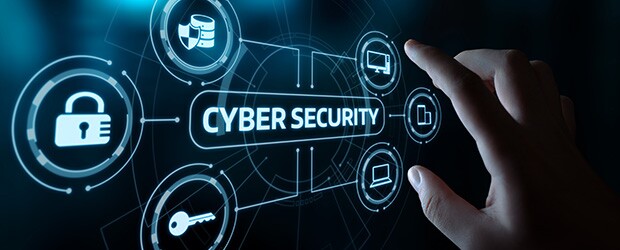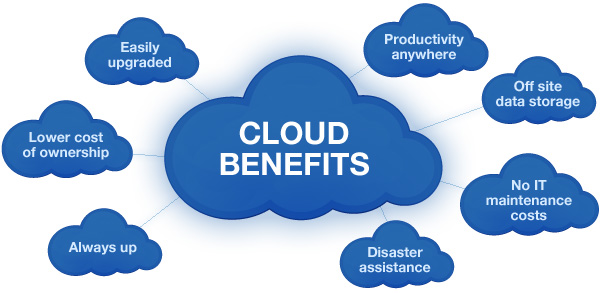Importance of Cybersecurity and How to Stay Safe Online
Importance of Cybersecurity is the practice of protecting digital systems, networks, and data from theft, damage, or unauthorized access.

By understing of Importance of Cybersecurity, our lives are increasingly intertwined with the online world. From shopping and banking to socializing and working, the internet has become an integral part of our daily routine.
While this digital revolution has brought about unprecedented convenience and connectivity, it has also exposed us to a new set of risks and challenges.
Cybersecurity, the practice of protecting digital systems, networks, and data from theft, damage, or unauthorized access, has never been more critical. In this blog post, we will delve into the importance of cybersecurity and provide practical tips on how to stay safe online.
The Importance of Cybersecurity
Protection of Personal Information
One of the primary reasons why cybersecurity is essential is the protection of personal information. In today's interconnected world, we share a vast amount of personal data online, from our names and addresses to financial details and social security numbers.
Cybercriminals are constantly seeking to exploit vulnerabilities in order to steal this information for various malicious purposes, including identity theft and financial fraud.
By implementing robust cybersecurity measures, individuals and organizations can safeguard their sensitive data, ensuring that it remains confidential and protected from unauthorized access. This is not only crucial for personal privacy but also for the security of businesses, as a data breach can result in significant financial losses and reputational damage.
Preservation of Financial Assets
Financial security is another critical aspect of cybersecurity. With the increasing prevalence of online banking and digital payment methods, our financial assets are more susceptible to cyberattacks than ever before.
Hackers often target individuals and organizations to gain access to bank accounts, credit card information, and investment portfolios.
Effective cybersecurity measures, such as strong and regularly updated passwords, multi-factor authentication, and secure browsing practices, can help prevent unauthorized access to financial accounts and protect your hard-earned money.
Protection of Intellectual Property
In the digital age, intellectual property has become a valuable asset for businesses and individuals alike. Intellectual property includes patents, copyrights, trade secrets, and proprietary software.
Cyberattacks aimed at stealing or compromising intellectual property can have devastating consequences, including financial losses and damage to a company's competitive edge.
Cybersecurity plays a vital role in safeguarding intellectual property by preventing unauthorized access, theft, or manipulation of valuable information and assets.
National Security
Beyond personal and business concerns, cybersecurity is crucial for national security. Governments and critical infrastructure, such as power grids, water supply systems, and transportation networks, rely heavily on digital technology. A successful cyberattack on these systems can disrupt essential services, compromise national defense, and even endanger lives.
By maintaining strong cybersecurity defenses, governments and organizations can protect critical infrastructure and maintain the security and stability of nations.
Social and Psychological Well-being
The internet has also become a significant part of our social lives. We use social media platforms, online forums, and messaging apps to connect with friends, family, and colleagues. Cyberbullying, harassment, and online scams are prevalent issues that can have a profound impact on individuals' mental and emotional well-being.
Practicing good cybersecurity habits can help mitigate these risks, ensuring that online interactions remain positive and safe.
How to Stay Safe Online
Now that we understand the importance of cybersecurity, let's explore some practical steps to stay safe online:
Use Strong Passwords
Passwords are your first line of defense against cyberattacks. Create complex passwords that include a combination of letters, numbers, and special characters. Avoid using easily guessable information such as birthdates or common words. Consider using a password manager to securely store and manage your passwords.
Enable Two-Factor Authentication (2FA)
Two-factor authentication adds an extra layer of security by requiring you to provide two forms of identification before gaining access to an account. This often involves something you know (your password) and something you have (a mobile device or authentication app). Enable 2FA wherever possible to enhance your account security.
Keep Software and Systems Updated
Software developers regularly release updates and patches to address security vulnerabilities. Ensure that your operating system, antivirus software, web browsers, and applications are up to date. Cybercriminals often exploit outdated software to gain access to systems.
Be Cautious with Email and Links
Phishing emails are a common tactic used by cybercriminals to trick individuals into revealing sensitive information. Be cautious when opening emails from unknown senders and avoid clicking on suspicious links or downloading attachments from untrusted sources. Verify the legitimacy of requests for personal or financial information.
Use Secure Wi-Fi Networks
When connecting to public Wi-Fi networks, exercise caution. Public Wi-Fi networks are often less secure, making it easier for hackers to intercept data. If you need to access sensitive information, consider using a virtual private network (VPN) to encrypt your internet connection and protect your data.
Be Mindful of Social Media Privacy
Review and adjust your privacy settings on social media platforms to control who can see your posts and personal information. Be cautious about sharing personal details online, as cybercriminals can use this information for social engineering attacks.
Regularly Back Up Your Data
Data loss can occur due to cyberattacks, hardware failures, or other unforeseen events. Regularly back up your important data to an external device or cloud storage. This ensures that you can recover your data in case of a ransomware attack or hardware failure.
Educate Yourself and Others
Stay informed about the latest cybersecurity threats and best practices. Education is a powerful tool in preventing cyberattacks. Share your knowledge with friends and family to help them stay safe online as well.
Use Antivirus Software
Install reputable antivirus and anti-malware software on your devices. These tools can detect and remove malicious software that may compromise your security.
Be Skeptical and Verify
If something seems too good to be true or suspicious, trust your instincts. Verify the authenticity of offers, messages, and requests. Don't hesitate to contact the relevant organization or individual through official channels to confirm any unusual requests.
In conclusion, cybersecurity is of paramount importance in our increasingly digital world. By understanding the risks and taking proactive measures to protect ourselves and our information, we can enjoy the benefits of the internet while minimizing the potential dangers. Stay vigilant, stay informed, and stay safe online.
What's Your Reaction?
















